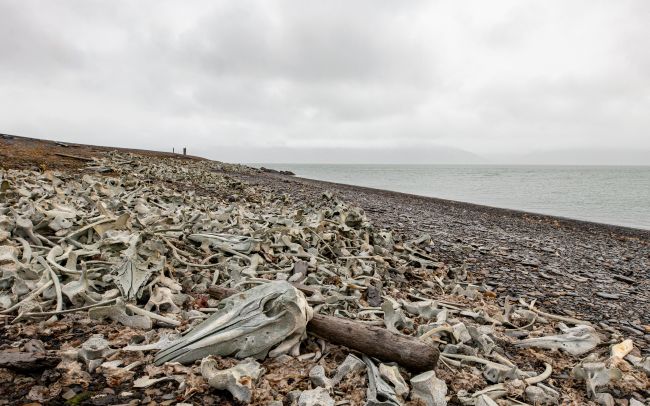Massive human impacts on the global environment began thousands of years earlier than researchers realised
Researchers from the Arctic Centre at the University of Groningen have been involved in a new study, which proves that h umans have been transforming earth’s ecology for many thousands of years, with impacts starting far earlier than ever realised. The research involved a truly global collaboration among more than 250 archaeologists – the ArchaeoGLOBE project , led by Professor Erle C. Ellis and Lucas Stephens, confirms the deep roots of Earth’s reshaping into the human planet of the Anthropocene.
By hunting and foraging, farming and urbanizing Earth’s land over the past 10,000 years, human societies have driven species extinct, deforested most the planet, ripped up the earth’s surface for farming, and realised vast quantities of carbon into the atmosphere, creating the heavily-impacted and rapidly-warming planet that we know today. The fact that these human impacts began much earlier, and were far more widespread than ever appreciated, comes as a surprise to many earth scientists – these new results will have profound implications for understanding and modelling contemporary global changes in land use, climate and biodiversity around the world.
Human transformation of the global environment accelerated with the emergence of agriculture, but the extent, trajectory, and implications of these very early changes is not well understood and so they are often overlooked in studies of more recent human impacts. An empirical global assessment of land use from 10,000 years before the present (yr B.P.) to 1850 CE reveals that around 3000 years ago the planet that was already undergoing massive transformation through the combined activities of hunter gatherers, farmers, and pastoralists – this is far earlier than the dates commonly used by Earth Scientists in land-use reconstructions that aim to measure more recent human impacts. Archaeological reconstruction of global land use history illuminates the deep roots of Earth’s transformation and challenges the emerging Anthropocene paradigm, which argues that large-scale anthropogenic global environmental change is mostly a very recent phenomenon. The study involved synthesis of knowledge contributed by more than 250 archaeologists.
PhD Aripekka Junno - archaeologist based at the Arctic Centre, University of Groningen, is co-author of the study: “These results highlight that human activities were massively transforming the global environment long before the Industrial Revolution, and that these impacts began many thousands of years earlier than we had ever realised; only large-scale collaborative research efforts like this one can help us understand where, when and why these early human pressures first started to transform global environments”
Corresponding author, Professor Erle C. Ellis from The University of Maryland, Baltimore County (UMBC), concludes that: “Archaeologists have unrivalled tools for investigating human changes in environments over the long term. The ArchaeoGLOBE project brought this expertise together at global scale to understand the global environmental changes caused by humans. Our hope is that this is only the first achievement of what will become a new, “massively collaborative” scientific approach to understanding the global environmental changes caused by humans over the long term.”
The results are published on August 30, 2019 in Science , in a Research Article: “Archaeological assessment reveals Earth’s early transformation through land use’.
Groningen University Contact Person:
Aripekka JUNNO (Arctic Centre, University of Groningen)
Email: a.o.junno@rug.nl
Mobile: +31 (0) 642686774

| Last modified: | 02 September 2019 10.06 a.m. |
More news
-
16 April 2024
UG signs Barcelona Declaration on Open Research Information
In a significant stride toward advancing responsible research assessment and open science, the University of Groningen has officially signed the Barcelona Declaration on Open Research Information.
-
02 April 2024
Flying on wood dust
Every two weeks, UG Makers puts the spotlight on a researcher who has created something tangible, ranging from homemade measuring equipment for academic research to small or larger products that can change our daily lives. That is how UG...
-
18 March 2024
VentureLab North helps researchers to develop succesful startups
It has happened to many researchers. While working, you suddenly ask yourself: would this not be incredibly useful for people outside of my own research discipline? There are many ways to share the results of your research. For example, think of a...
